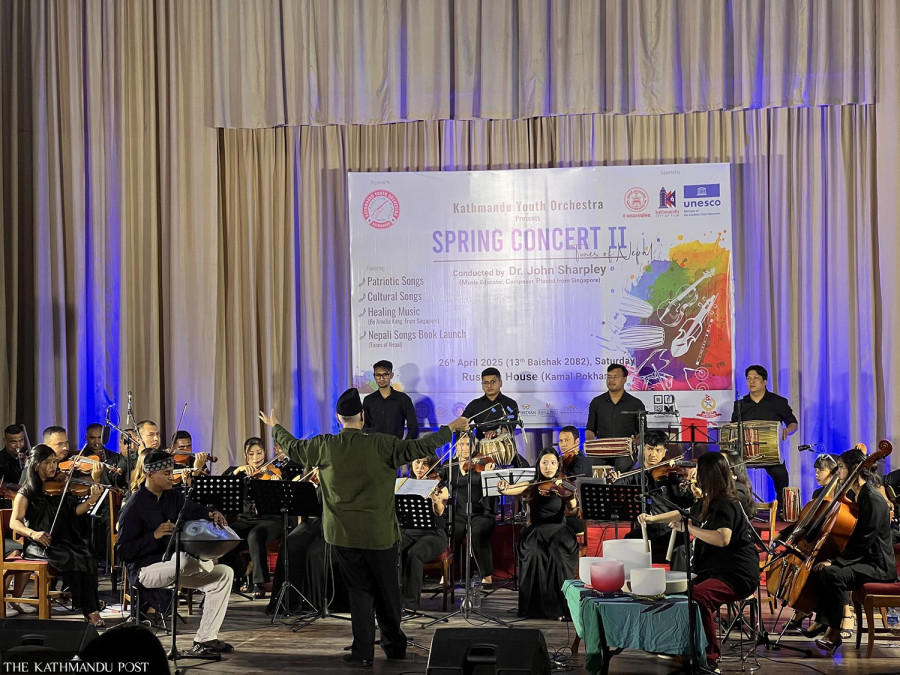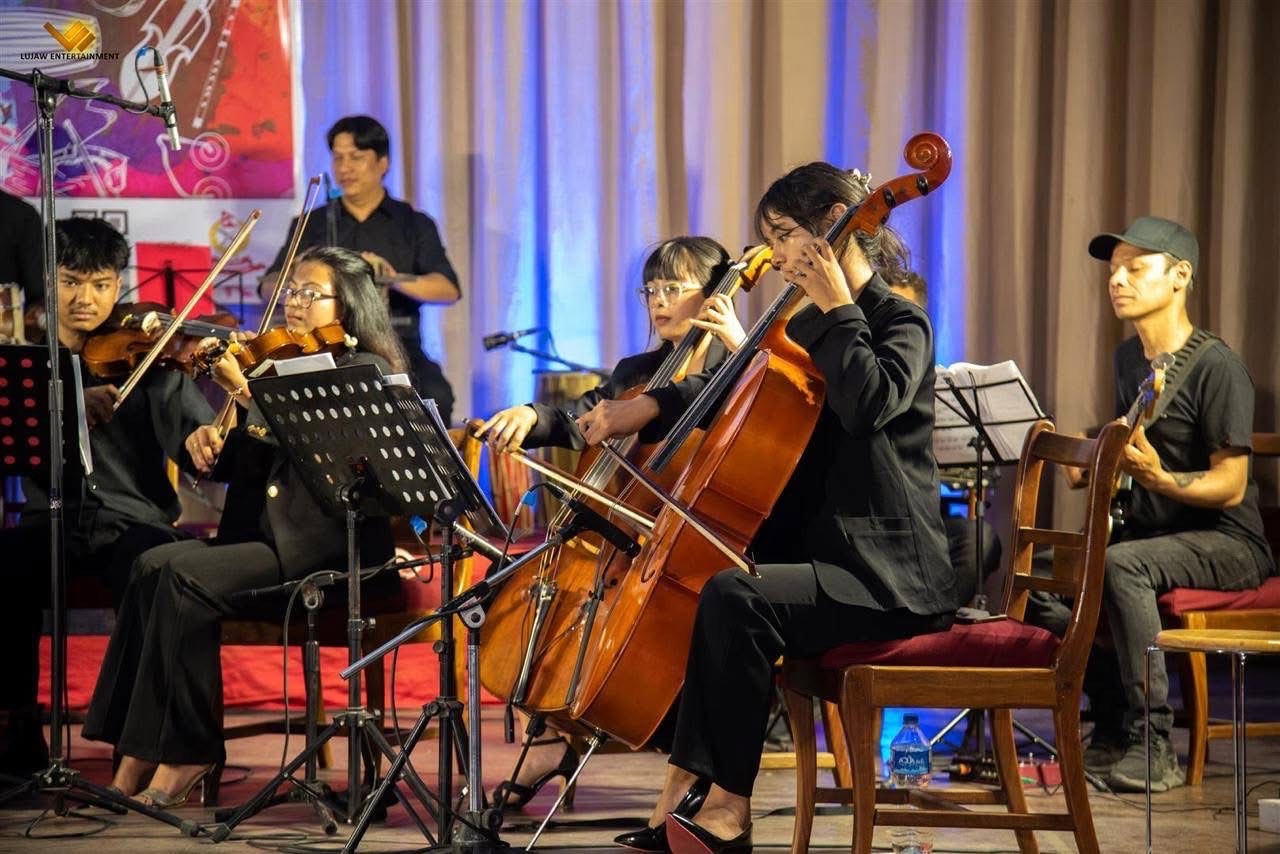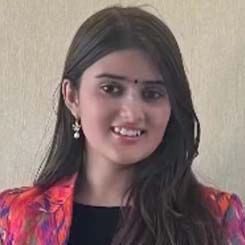Culture & Lifestyle
Kathmandu Youth Orchestra’s Spring Concert bridges cultures through music
The event was a meeting of Nepali tradition with Western orchestral grandeur.
Reeva Khanal
On Saturday, the Russian Centre of Science and Culture in Kamalpokhari was transformed into a musical space as the Kathmandu Youth Orchestra hosted the second edition of the ‘Spring Concert’. The event began with an inaugural ceremony led by Nhuchhe Bahadur Dangol, a music educator, setting the stage for an evening where music would transcend boundaries and unite cultures.
Nhuchhe Munikar coordinated the programme, and the orchestral team was led by Sabin Munikar, Kathmandu Youth Orchestra’s founder. The concert was a showcase of Nepali tradition reimagined through Western orchestral instruments.
A total of 36 performers took to the stage, sharing their passion for music. The evening was a celebration of not just music, but also the vision of the Kathmandu Youth Orchestra—one that blends the richness of Nepali tunes with the art of orchestral performance. With every note, they conveyed a powerful message of cultural pride and musical unity. The show also featured the book launch of ‘Tunes of Nepal’.
Sabin, the founder of the Kathmandu Youth Orchestra, reflected on his two-decade-long orchestral journey, highlighting that the primary aim of organising such events is to showcase Nepal’s musical identity. Sabin began his musical journey under the guidance of his uncle Dharma Munikar. “Although the instruments we use are Western, the melodies are ours,” he shares, emphasising that Nepali songs, too, can be beautifully expressed through Western instruments.
Phoebe Shrestha, a Western classical violinist, completed her violin education at the London College of Music and the Associated Board of the Royal Schools of Music. She holds a Bachelor’s degree in Business Studies and a Postgraduate Diploma in Counselling Psychology. Since 2007, Shrestha has found healing and meditation through the violin. With over a decade of teaching experience and as a board member of the Kathmandu Youth Orchestra, she believes that music transcends borders and styles. Shrestha performed as a violinist in the concert and mentored the other performers.
“Blending Eastern traditions with Western instruments isn’t just about performance. It’s about making a statement that music is universal, and in doing so, we honour our roots while embracing global influences,” she says. “Music transcends boundaries. It connects us all, regardless of where we come from,” she adds.
In a world where Western music dominates, Shrestha emphasises the need to honour Eastern traditions. “It’s essential to remember the richness of Eastern traditions. By honouring our roots, we create something that speaks to hearts across the globe,” she says.
Iva Maharjan, 24, who played her part as a cellist, recalls how it all began back in 2011. She shares that her brother, Sabin, had spoken of his vision to open an institute and start classes. When her parents asked if she would like to join, she remembered there were only four students at the time—a modest beginning that has now flourished into a thriving musical community. Maharjan began her musical journey at the age of 11 when Sabin introduced her to the violin.
While speaking about the second edition of the Spring Concert, Maharjan highlighted the celebration of folk music, traditional Nepali tunes, and Nepal Bhasa. She recalled that last year’s highlights included the Kumari dance and the Lakhey dance, whereas this year, it was the Yak dance.
For Maharjan, music is meditation. Playing an instrument helps her focus, allowing worries to melt away. After each performance, she feels fresh, which she describes as fulfilling.
For her, instruments are like gods, and she connects this sentiment with the celebration of Bishwakarma Puja, where she worships her violin. She shares that learning Western instruments on her own was no easy feat, yet the journey has been rewarding. Learning the cello, in particular, was a challenge. However, seeing other aspiring cellists go about their passion has inspired her.

She believes that when more people hear traditional Nepali songs performed through Western instruments, it not only sparks interest but also aids in preserving cultural heritage. It sends a strong message—that their instruments are not confined to Western classical music alone, but can also breathe life into the rich melodies of Nepali traditions.
American musician and artist Dr John Sharpley was the conductor and mentor of the ‘Spring Concert’.
Sharpley shared how Nepal feels like home to him. He believes in the power of music—its ability to unite and transform—and it is this very power that keeps drawing him back to Nepal. Having lived in Singapore for 40 years, Sharpley owns a collection of over 300 musical instruments. Yet for him, it is not just about the instruments; it is about the philosophy, the spirituality, and the belief in one shared humanity, and how we, as humans, can manifest that.
Sharpley feels closely attached to the Kathmandu Youth Orchestra, sensing that he has something meaningful to contribute—from sharing musical knowledge to teaching the finer details of sound, its articulation, and the blending of Nepali tunes with Western instruments. “It is a privilege to work with Nepali musicians and singers,” he shares, adding that, through such concerts, he feels he can step inside Nepali culture and soul.
He has developed a special love for the Sarangi. He also revealed that ‘Ukali Orali’ is his favourite song, often bringing tears to his eyes when he hears it.
Amelia Kang, musician and sound healer, shares that she feels a strong connection to Kathmandu. “Nepal’s culture and history are rooted in spirituality and nature. The energy here is elemental—tied to the Earth, water, fire, air, and space,” she says. Kang led a sound healing session, accompanied by other performers who provided musical backdrop with their instruments.
The Kathmandu Youth Orchestra’s second edition of the Spring Concert celebrated the rich blend of Nepali traditions and Western orchestral music. Through their performances, the musicians and mentors showed how music can connect people, preserve culture, and inspire unity. The evening highlighted the commitment of young Nepali musicians to honour their roots while embracing new possibilities, creating a future where tradition and innovation come together in harmony.




 9.83°C Kathmandu
9.83°C Kathmandu

.jpg&w=200&height=120)













